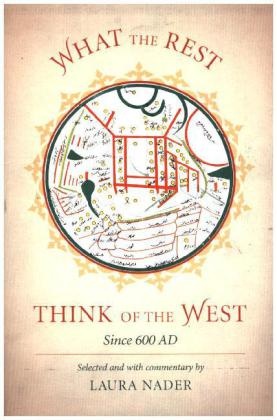Read more
Over the past few centuries, as Western civilization has enjoyed an expansive and flexible geographic domain, Westerners have observed other cultures with little interest in a return gaze. In turn, these other civilizations have been similarly disinclined when they have held sway. Clearly, though, an external frame of reference outstrips introspection - we cannot see ourselves as others see us. Unprecedented in its scope, What the Rest Think of the West provides a rich historical look through the eyes of outsiders as they survey and scrutinize the politics, science, technology, religion, family practices, and gender roles of civilizations not their own. The book emphasizes the broader figurative meaning of looking west in the scope of history.
List of contents
Preface
Acknowledgments
Introduction: Comparative Consciousness
Maps
PART ONE. MIDDLE EASTERN TRAVELERS AND THEIR OBSERVATIONS
1. The Rus - Ahmad Ibn Fadlan
2. From The Crusades through Arab Eyes - Amin Maalouf
3. From Napoleon in Egypt - Abd Al-Rahman Al-Jabarti
4. An Imam in Paris - Rifa?ah Al-Tahtawi
5. On the Music of the Maltese and of Others - Ahmed Faris Al-Shidyaq
6. From A Turkish Woman’s Impressions - Zeyneb Hanoum
7. From Orientalism - Edward Said
8. The President of Iran’s Letter to the President of the United States - Mahmoud Ahmadinejad
9. Democracy Cartoons - Khalil Bendib
10. Empire as Everyday Life, Everyday Life as Imperialism - Mayssoun Sukarieh
PART TWO. CHINESE TRAVELERS AND THEIR OBSERVATIONS
11. From Buddhist Records of the Western World - Xuanzang (Hiuen Tsiang)
12. Two Poems - Huang Zunxian
13. The Power and Threat of America - Liang Qichao
14. American Democracy in Crisis and The Collapse of American Capitalism - No-Yong Park
15. The Shallowness of Cultural Tradition - Fei Xiaotong
16. From Americans and Chinese - Francis L. K. Hsu
17. Some Thoughts on Certain Aspects of Modern Western Culture - Zhao Fusan
18. Be Nice to the Countries That Lend You Money - Interview of Gao Xiqing by James Fallows
19. Full Text of Human Rights Record of United States in 2008 - Xinhuanet
PART THREE. INDIAN TRAVELERS AND THEIR OBSERVATIONS
20. From Travels of Mirza Abu Taleb Khan - Mirza Abu Taleb Khan
21. Remarks on Settlement in India by Europeans - Raja Rammohun Roy
22. My Impressions of England - Keshub Chunder Sen
23. From Poverty and Un-British Rule in India - Dadabhai Naoroji
24. The Condition of England and Civilization — Mohandas K. Gandhi
25. Passage to and from India - Nirad C. Chaudhuri
26. Indian Economic Policy - Birendra Narayan Chakravarty
27. The Eurocentric History of Science and Multicultural Histories of Science - Arun Bala
28. From The Thistle and the Drone - Akbar Ahmed
PART FOUR. JAPANESE TRAVELERS AND THEIR OBSERVATIONS
29. From The Record of a Pilgrimage to China in Search of the Law - Ennin
30. From A Secret Plan of Government and Tales of the West - Honda Toshiaki
31. From As We Saw Them: The First Japanese Embassy to the United States - Masao Miyoshi
32. From The Autobiography of Yukichi Fukuzawa - Fukuzawa Yukichi
33. Why Security Treaty? - Yuzuru Katagiri
34. Japan and the United States: Partners or Master and Servant? - Shintaro Ishihara
For Further Reading
Index
About the author
Laura Nader is Professor of Anthropology at University of California, Berkeley and is possibly the leading world authority in Anthropology of Law. She has conducted fieldwork in Lebanon, Mexico, and the US and her groundbreaking work on harmony ideology and access to law and her unmatchable publication list make Nader one of the most interesting voices in the current academic scene.
Summary
Provides a historical look through the eyes of outsiders as they survey and scrutinize the politics, science, technology, religion, family practices, and gender roles of civilizations not their own. This book emphasizes the broader figurative meaning of looking west in the scope of history.
Additional text
"For a novice reader undertaking a journey of discovery, a researcher looking for take-off points into the issue of comparative consciousness, or an educator designing a course on non-western views of the west, this book provides both source material and inspiration."

